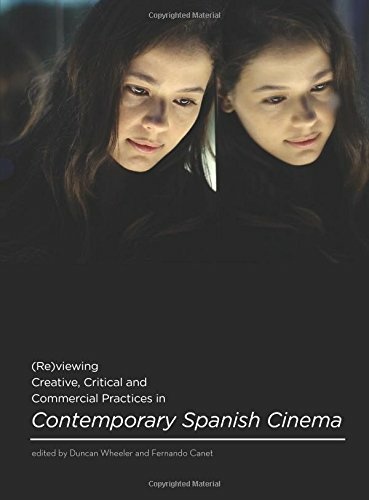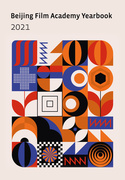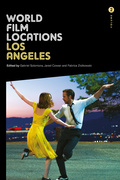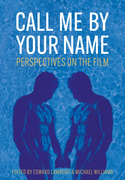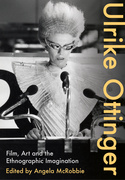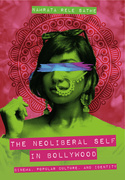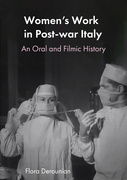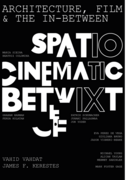(Re)viewing Creative, Critical and Commercial Practices in Contemporary Spanish Cinema (Book)
This volume is a reassessment of contemporary Spanish cinema from 1992 to 2012, bringing leading academics from a broad range of disciplinary and geographical backgrounds into dialogue with critically and commercially successful practitioners to suggest the need to redefine the parameters of one of the world's most creative national cinemas.
Edition
Formulated around a number of key thematic concerns – including new creative trends; the politics and practices of memory; auteurship, genre and stardom in a transnational age – this reassessment of contemporary Spanish cinema from 1992 to 2012 brings leading academics from a broad range of disciplinary and geographical backgrounds into dialogue with critically and commercially successful practitioners to suggest the need to redefine the parameters of one of the world’s most creative national cinemas. This volume will appeal not only to students and scholars of Spanish films, but also to anyone with an interest in contemporary world cinema.
Dr Fernando Canet is associate professor in film and media studies at the Fine Arts College (Polytechnic University of Valencia, Spain). He has been a visiting research fellow at the Goldsmiths College (University of London), at New York University and at the University of Kent. He is the author of two books, co-author of another about film narrative and co-editor of three books, special mention to his co-edited book titled (Re)viewing Creative, Critical and Commercial Practices in Contemporary Spanish Cinema (Duncan and Canet 2014, Intellect Ltd). He has been the guest editor of a special issue of Hispanic Research Journal on Contemporary Spanish Cinema and a special issue of L’Atalante on Cinephile Directors in Modern Time. When the Cinema Interrogates Itself. His latest articles have been published in Communication & Society, Studies in European Cinema, Studies in Documentary Films, The Journal of Popular Culture, Popular Communication, Bulletin of Spanish Studies, Journal of Film and Video, Journal of Screenwriting and International Journal of Cultural Studies.
Duncan Wheeler is Associate Professor in Spanish studies at the University of Leeds, where he is also a member of the Executive Committee for the Centre for World Cinemas.
Editorial Note
Chapter 1: Introduction: How and Why This Book Came into Being – Fernando Canet and Duncan Wheeler
Chapter 2: Spanish Films, 1992–2012: Two Decades of Cinematic Production and Critical Discourse – Duncan Wheeler
Chapter 3: From the Past to the Present: Contemporising Trends that Define Spanish Cinema – Fernando Canet
Part 1: Sense and Sensibility: New Forms of Being and Seeing in Recent Spanish Cinema
Chapter 4: Back to Africa? Colonial History and Postcolonial Dynamics in Recent Spanish Cinema – Alberto Elena
Chapter 5: The New Ethos of Gay Culture and the Limits of Normalization – Helio San Miguel
Chapter 6: Behind the Enigma Construct: A Certain Trend in Spanish Cinema – Javier Moral
Chapter 7: Reproduction and Rhetorical Processes in the Construction of Reality: En Construcción and La leyenda del tiempo as Case Studies – Fernando Canet
Chapter 8: Art and Ethnography: Miquel Barceló and Isaki Lacuesta – Earth Magicians? – Wenceslao García Puchades and Miguel Corella Lacasa
Chapter 9: The Everyday Affect: Isabel Coixet and the Five Senses – Jennie Rothwell
Part 2: Revisiting the Past: The Politics of Memory and the Transition’s Cinematic Legacy
Chapter 10: Ana Torrent as Palimpsest in Elio Quiroga’s No-Do (The Haunting) – Sarah Wright
Chapter 11: Victimhood in Contemporary Spanish Documentary: The Politics of Agency in Jaime Camino’s La vieja memoria and Los niños de Rusia – Isabel Estrada and Melissa M. González
Chapter 12: New Bodies, New Sounds: Rediscovering the Eroticism of the Transition – Alejandro Melero
Chapter 13: Blood and Unfulfilled Promises: Representations of Terrorism and the Transition – Concepción Cascajosa Virino
Chapter 14: Back to the Future: Repackaging Spain’s Troublesome Past for Local and Global Audiences – Duncan Wheeler
Chapter 15: Clowns, Goats, Music and the Comedic Violent: Late Francoism and the Transition to Democracy in Álex de la Iglesia’s Films – Vicente Rodríguez Ortega
Part 3: Redefining Auteurship, Genre and Stardom in a Transnational Age
Chapter 16: Almodóvar in the USA/The USA in Almodóvar – Cristina Martínez-Carazo
Chapter 17: Acting and Directing in Spain: Historicizing Stardom and the Author Function – Duncan Wheeler
Chapter 18: Sex, Art and Commerce: Penélope Cruz and Isabel Coixet Tackle Philip Roth in Elegy – Duncan Wheeler
Chapter 19: Deadly Hybridity: Sexykiller, the Female Serial Killer and the New Spanish Horror Film – Shelagh Rowan-Legg
Chapter 20: Flexing Generic Boundaries: Torrente, [REC] and Adolescent Cinema in Spain – Agustín Rico-Albero
Chapter 21: The Torrente Tetralogy: A Homegrown Saga – Lidia Merás
Chapter 22: Hybrid Models: Auteurism and Genre in Contemporary Spanish Crime Thrillers – Carmen Herrero
Chapter 23: Planet 51 and Spanish Animation: The Risks and Attractions of Globalization – Maria Soler Campillo, Marta Martín Núñez and Javier Marzal Felici
Coda: Backstage Pass – Engaging with Practitioners and Cinematic Institutions
Chapter 24: How to Make Arty Films Now – Luis Miñarro
Chapter 25: How to Make Commercial Films Now – Mercedes Gamero and Duncan Wheeler
Chapter 26: San Sebastián: A Film Festival of Contrasts – Mar Diestro-Dópido
Chapter 27: The Art Director as Architect: The Reconstruction of Deconstructed Memories – Sandra Martorell
Chapter 28: The Films of Isaki Lacuesta: Hidden Portraits, Multiple Lives – Linda C. Ehrlich
Chapter 29: Color perro que huye: An Audio-visual Prosumer versus the Institutional Cinematic Model – Elena López Riera
Chapter 30: New Tendencies in Contemporary Cinema: Round Table Discussion with José Luis Guerin, Isaki Lacuesta and Luis Miñarro – Fernando Canet and Duncan Wheeler
'The tome is a must-read for all scholars and serious students of contemporary Spanish cinema.'


